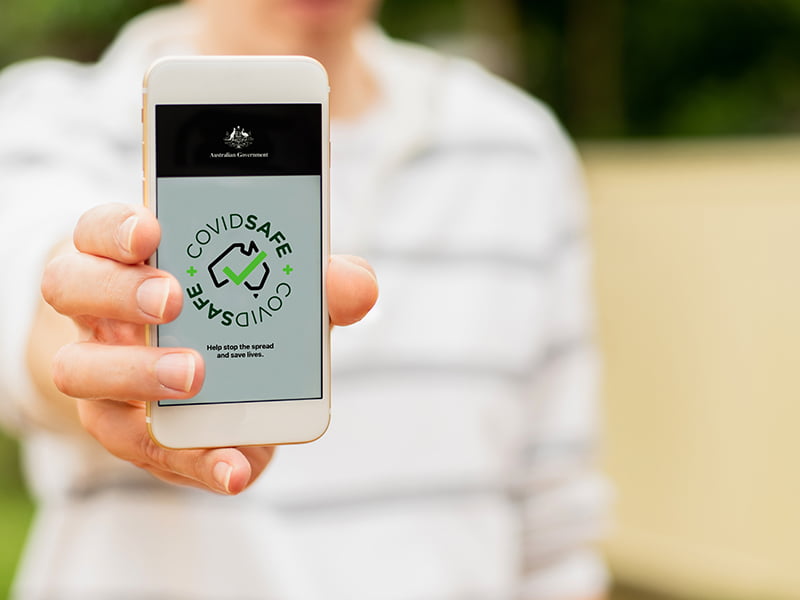The government agency responsible for outsourcing the development of the failed COVIDSafe app did not monitor the developer’s performance or consider value for money as the contract more than doubled to $6 million.
The Digital Transformation Agency (DTA) also failed to notice multiple overpayments to the company totaling nearly $400,000, which have not been paid back six-months after being identified. The agency was made responsible for Australia’s controversial contact tracing app early in the pandemic.
According to a scathing new review of the DTA’s ICT procurement, agency officials decided to “bypass the usual process” to select the developers of COVIDSafe because it was related to the pandemic.
They would later fail to notice overpayments or properly monitor exactly what the company was delivering.

COVIDSafe was officially scrapped last month by the new Labor government, which called it a “colossal waste of more than $21 million of taxpayers money” after it discovered just 17 unique close contacts in the two years despite millions of downloads.
The development of the controversial app followed a procurement process that had no or non-compliant evaluation plans, criteria or request for documentation, according to the Australian National Audit Office, which examined the procurement along with eight others in a damning review of the DTA’s processes.
The DTA approached and selected only one company to develop COVIDSafe, Australian technology services firm Delv.
Delv had already been engaged by the Health department before responsibility for the contact tracing app was transferred to the DTA, which used its Digital Marketplace panel arrangement to transition the company by listing the work for just two days.
This appears to have been a formality, with Delv the only supplier approached and quickly awarded a $1.8 million contract to develop the app in March 2020.
It meant there were ineffective processes in place to determine if taxpayer money was being well spent, as is required by Commonwealth Procurement Rules.
The contract has since climbed to $6 million through two revisions, but value for money was never discussed in any of the spending approvals, the ANAO found.
The DTA was also unable to “produce any documentation to demonstrate that performance had been monitored”. The agency told the ANAO the contract manager for the COVIDSafe app development is no longer employed by the DTA and it could not find “any relevant records”.
Invoices issued by Delv “did not include timesheets for time charged or consistently specify the milestones or deliverables completed under the work order or variation”.
The DTA’s management of the contract was also criticised by the ANAO, which identified overpayments to the company totaling $380,600.
Both the DTA and Delv said they were unaware of the overpayments until they were discovered by the audit office during its review, with the government agency putting it down to human error in its manual payment processes.
The DTA told the Auditor-General in June, “Delv have acknowledged the overpayment. The agency is now working with Delv to agree a payment schedule to meet the needs of both the DTA and Delv”.
But as of mid-August when the ANAO review was being finalised, an agreement had not been reached on a repayment plan.
Concerned by the overpayments, which stemmed from an SAP accounts payable system the DTA used until February this year, the ANAO asked for a report on duplicate payments.
The report, which included over 700 line items, could not detect one of the two COVIDSafe app overpayments due to a difference in how the invoice had been recorded in the free text field.
The ANAO then sampled seven sets of potential duplicate payments from the report, selected on a risk basis, after removing sets of payments that were clearly not duplicates.
“Of these seven instances, three were duplicate payments. In these instances, the DTA did not detect the overpayments through its internal controls,” The ANAO report said.
The DTA instead relied on voluntarily repayments by the vendors which had previously identified the error.
The agency’s accounts payable system was upgraded in February, but some risks of overpayment still remain, according to the ANAO.
The DTA accepted its recommendation to improve its training and management of internal payment controls, and conduct an internal compliance review or audit within the next 12 months to verify the effectiveness of its payment controls.
It also accepted recommendations to improve its procurement processes and performance monitoring to bring them into line with government-wide rules.
Do you know more? Contact James Riley via Email.

